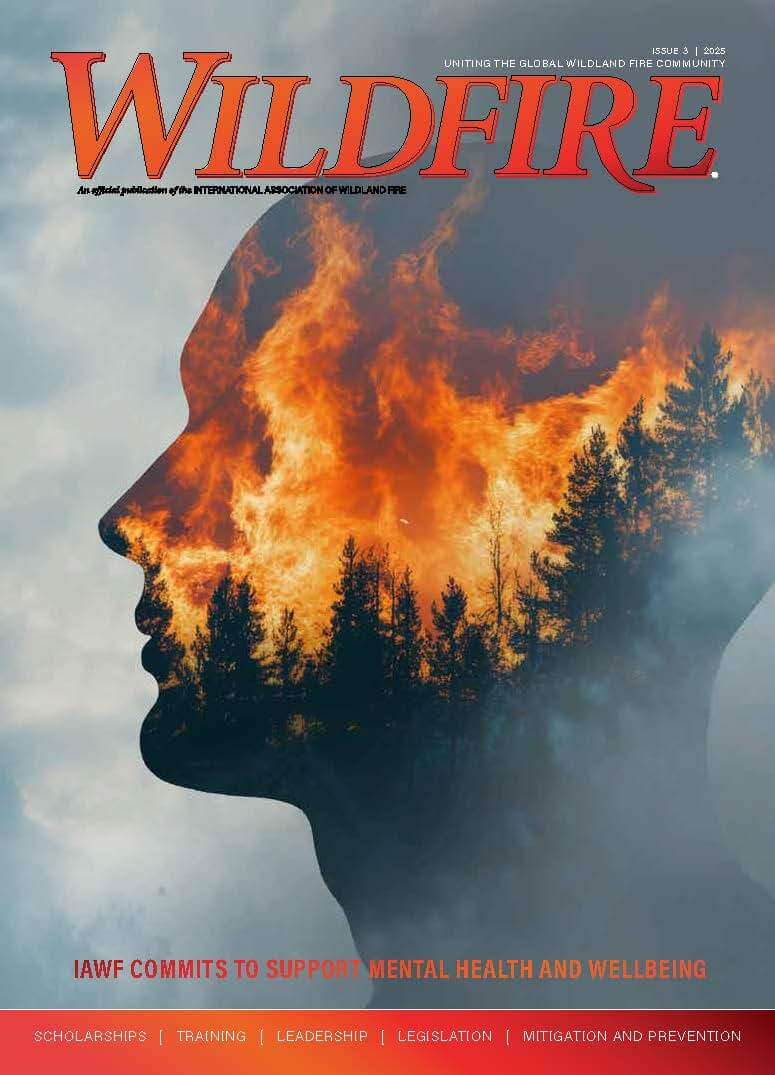2025 IAWF Scholarship Recipients
We are pleased to share the 2025 scholarships recipients
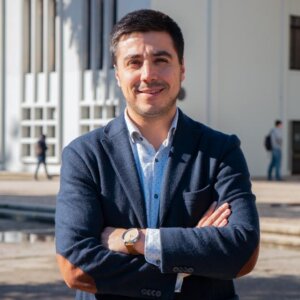
Javier Freire Herrera, PhD Candidate | Environmental Health Science
School of Public Health, University of California, Berkeley
Javier Freire is currently a PhD Candidate in Public Health at the University of California, Berkeley, in the Environmental Health Sciences program. His research focuses on the effects of environmental conditions, particularly extreme heat and air pollution, on the health of wildland firefighters (WLFFs) in Chile. During the 2024–2025 wildfire season, they conducted a field study with the support of public and private institutions in Chile. Between December and February, they conducted on-site measurements using wearable sensors to monitor, in real-time, physiological variables such as sweating, heart rate, energy expenditure, core body temperature, among others. They also recorded environmental indicators, including the Wet Bulb Globe Temperature (WBGT) and fine particulate matter concentrations (PM2.5), among others. Data collection occurred during both active wildfire suppression and training and routine activities. Additionally, they surveyed 357 WLFFs to assess their perceptions of heat stress and other critical aspects of their daily work. He is currently in the data analysis phase, under the supervision of his academic advisor, Dr. Carisa Harris, and they expect to publish the results of this study soon.
Javier holds a degree in Physical Therapy (2009) and a Master’s in Ergonomics (2011), both from the University of Concepción in Chile. Since 2010, he has served as a faculty member at the same university, participating in a range of research projects related to ergonomics and occupational health, including the annual assessment of the physical conditions of WLFFs in Chile. In 2020, he was awarded a Fulbright scholarship to pursue his doctoral studies in the United States, which he is currently undertaking in California alongside his family. His academic goal is to develop applied research that contributes to improving the health and safety conditions of workers exposed to extreme environments, and to help prevent illnesses associated with occupational overload in the context of climate extremes.
 Shyloh van Delft, MSc Student, Wildlife Ecology & Management, University of Alberta, in Partnership with Yukon University
Shyloh van Delft, MSc Student, Wildlife Ecology & Management, University of Alberta, in Partnership with Yukon University
From a young age, Shyloh was captivated by the natural world, developing a particular fascination with birds. Alongside this, her strong sense of community and respect for fire led her to join a local Volunteer Fire Department as a teenager, where she served for several years before beginning her undergraduate studies. She pursued a Bachelor’s degree in Northern Environmental and Conservation Sciences through a joint program offered by the University of Alberta and Yukon University.
Now a Master’s student, Shyloh continues her studies remotely from her home in Canada’s Yukon Territory through the same academic partnership. Her research, in collaboration with Yukon Wildland Fire Management, Ta’an Kwäch’än Council, Kwanlin Dün First Nation, and other partners, explores how wildfire mitigation strategies affect wildlife and ecosystems in the Yukon’s boreal forest. Specifically, she is investigating how tree cavity-using species respond in different ways to forest fuel reduction treatments such as FireSmart, shelterwood, and partial retention harvesting.
Her research aims to advance understanding of how wildfire mitigation strategies influence northern boreal ecosystems. It also seeks to inform wildfire risk reduction planning that safeguards communities while supporting long-term environmental stewardship and ecological resilience.
Shyloh would like to give thanks to the IAWF and wildfire community for their support of this research.


 Shyloh van Delft, MSc Student, Wildlife Ecology & Management, University of Alberta, in Partnership with Yukon University
Shyloh van Delft, MSc Student, Wildlife Ecology & Management, University of Alberta, in Partnership with Yukon University Marie Claire Aravena Acuña
Marie Claire Aravena Acuña Harrison Raine, MSc Student
Harrison Raine, MSc Student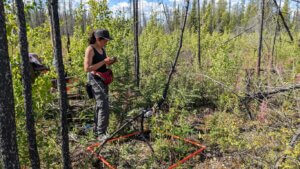 Elise Brown-Dussault, MSc Student in Integrative Biology, Wilfrid Laurier University
Elise Brown-Dussault, MSc Student in Integrative Biology, Wilfrid Laurier University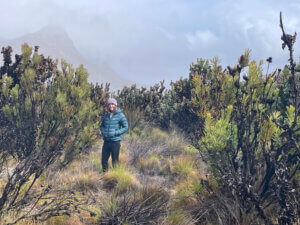 Stella Mosher, Ph.D. Candidate, Department of Geography, University of Utah
Stella Mosher, Ph.D. Candidate, Department of Geography, University of Utah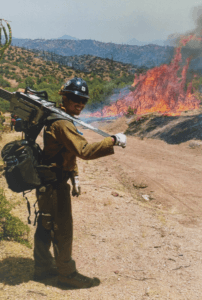 Sam Ebright
Sam Ebright
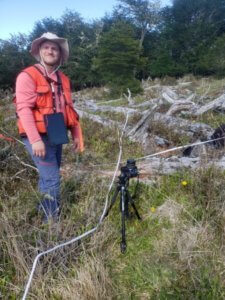 Matt Ruggirello
Matt Ruggirello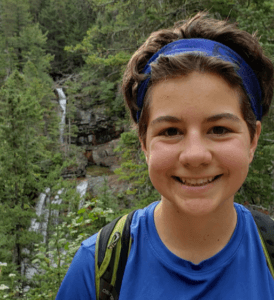
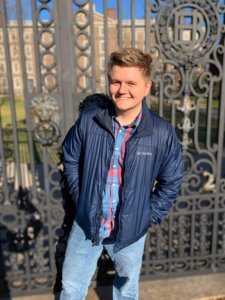
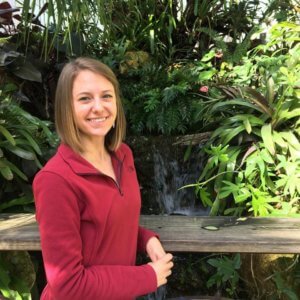
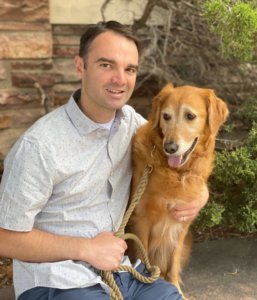
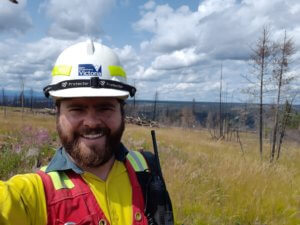 Samuel Hillman, PhD Candidate, RMIT University, Australia
Samuel Hillman, PhD Candidate, RMIT University, Australia Megan Rennie, Master of Science, Atmospheric Sciences, University of Nevada, Reno
Megan Rennie, Master of Science, Atmospheric Sciences, University of Nevada, Reno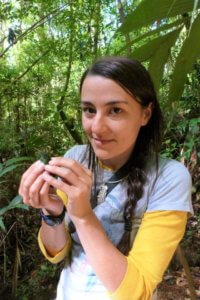 Joanne Kingsbury, PhD Environmental Science, The Ohio State University, Columbus, Ohio, USA Jo Kingsbury is a PhD student in the Environmental Science Graduate Program at The Ohio State University and is based within the School of Environment and Natural Resources. She is originally from the Isle of Arran in Scotland and completed her BSc Honors degree in Zoology at the University of Glasgow in 2011. While studying for her undergraduate degree, she spent her summers leading student expeditions to Latin America where she fell in love with tropical ecology and birds. After graduating, she worked for four years with the Royal Society for the Protection of Birds (RSPB) as a project officer in landscape-scale conservation. Her current research focuses on understanding how fire shapes habitat for globally threatened birds within Bolivia’s Beni Savanna Ecoregion, one of the earths most remote and threatened savanna systems. The Beni is critically understudied compared to other savanna systems globally and currently its habitats and biodiversity are experiencing extreme pressure from altered fire regimes associated with widespread cattle-ranching. Rangeland fire-management has altered historic wildfire patterns, changing the frequency, seasonality, extent and severity of fire-events. Understanding the fire ecology of this region will be vital to the future conservation of its habitats and species. She is working collaboratively with the local Bolivian Birdlife International partner Association Civil Armonia who own and manage protected land within the Beni. They have implemented multiple experimental burns to study how fire interacts with flooding and grazing to shape avian habitat (vegetation structure/composition) and resources (food/nest sites). Results will be used to build a predictive model to test how fire can be used to protect bird communities. Her work thus aims to develop more sustainable fire-management regimes and predictive tools for land managers that will help to balance agricultural and conservation priorities within this region and more widely within Latin America.
Joanne Kingsbury, PhD Environmental Science, The Ohio State University, Columbus, Ohio, USA Jo Kingsbury is a PhD student in the Environmental Science Graduate Program at The Ohio State University and is based within the School of Environment and Natural Resources. She is originally from the Isle of Arran in Scotland and completed her BSc Honors degree in Zoology at the University of Glasgow in 2011. While studying for her undergraduate degree, she spent her summers leading student expeditions to Latin America where she fell in love with tropical ecology and birds. After graduating, she worked for four years with the Royal Society for the Protection of Birds (RSPB) as a project officer in landscape-scale conservation. Her current research focuses on understanding how fire shapes habitat for globally threatened birds within Bolivia’s Beni Savanna Ecoregion, one of the earths most remote and threatened savanna systems. The Beni is critically understudied compared to other savanna systems globally and currently its habitats and biodiversity are experiencing extreme pressure from altered fire regimes associated with widespread cattle-ranching. Rangeland fire-management has altered historic wildfire patterns, changing the frequency, seasonality, extent and severity of fire-events. Understanding the fire ecology of this region will be vital to the future conservation of its habitats and species. She is working collaboratively with the local Bolivian Birdlife International partner Association Civil Armonia who own and manage protected land within the Beni. They have implemented multiple experimental burns to study how fire interacts with flooding and grazing to shape avian habitat (vegetation structure/composition) and resources (food/nest sites). Results will be used to build a predictive model to test how fire can be used to protect bird communities. Her work thus aims to develop more sustainable fire-management regimes and predictive tools for land managers that will help to balance agricultural and conservation priorities within this region and more widely within Latin America. 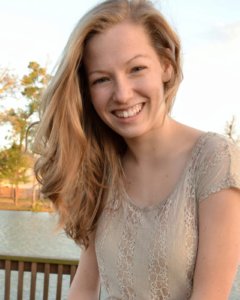 Lauren Folk, Masters of Applied Science in Civil Engineering, York University, Toronto, Ontario, Canada
Lauren Folk, Masters of Applied Science in Civil Engineering, York University, Toronto, Ontario, Canada  Paulina Llamas-Casillas is a Ph.D. student from Mexico in the School of Environmental and Forest Sciences, University of Washington. Her research focuses on using different proxies to reconstruct multiple fire regime parameters, with the aim of understanding how humans and climatic anomalies influence fire regime at different spatio-temporal scales in the tropics and temperate forests. Paulina worked as research assistant and instructor of fire ecology and management at the University of Guadalajara before starting her doctoral studies in Seattle. Paulina enjoys being a teaching assistant and mentoring students at the University of Washington. In the future, Paulina wants to use her professional and academic experience to create international networks for fire ecology studies.
Paulina Llamas-Casillas is a Ph.D. student from Mexico in the School of Environmental and Forest Sciences, University of Washington. Her research focuses on using different proxies to reconstruct multiple fire regime parameters, with the aim of understanding how humans and climatic anomalies influence fire regime at different spatio-temporal scales in the tropics and temperate forests. Paulina worked as research assistant and instructor of fire ecology and management at the University of Guadalajara before starting her doctoral studies in Seattle. Paulina enjoys being a teaching assistant and mentoring students at the University of Washington. In the future, Paulina wants to use her professional and academic experience to create international networks for fire ecology studies. Marshall received his Bachelor of Science degree in Meteorology from St. Cloud State University with minors in GIS and Computing in 2016. He is now pursuing a Masters of Science degree in Geography at Michigan State University. He is working with collaborators at the USDA Forest Service, St. Cloud State University, and Michigan State University to investigate the complex flows that occur in the vicinity of a wildland fire, flows that are primarily driven by heat and moisture released from the fire. Since extreme conditions in the fire environment make collecting meteorological observations difficult, we employ a high-resolution numerical model to simulate the atmospheric responses to a fire. The numerical simulations will determine the sensitivity of fire-induced flows to the magnitude of the heat and moisture fluxes from the fire, and to atmospheric stability, moisture, and wind profiles. The results from this project will help us to better understand the sensitivity of the fire inflow/outflow patterns and the atmospheric perturbations to the characteristics of the fires. The simulations, when combined with available observations, will enable us to diagnose fire-atmosphere interactions on scales that will help inform operational decision-making when managing both prescribed fires and wildfires.
Marshall received his Bachelor of Science degree in Meteorology from St. Cloud State University with minors in GIS and Computing in 2016. He is now pursuing a Masters of Science degree in Geography at Michigan State University. He is working with collaborators at the USDA Forest Service, St. Cloud State University, and Michigan State University to investigate the complex flows that occur in the vicinity of a wildland fire, flows that are primarily driven by heat and moisture released from the fire. Since extreme conditions in the fire environment make collecting meteorological observations difficult, we employ a high-resolution numerical model to simulate the atmospheric responses to a fire. The numerical simulations will determine the sensitivity of fire-induced flows to the magnitude of the heat and moisture fluxes from the fire, and to atmospheric stability, moisture, and wind profiles. The results from this project will help us to better understand the sensitivity of the fire inflow/outflow patterns and the atmospheric perturbations to the characteristics of the fires. The simulations, when combined with available observations, will enable us to diagnose fire-atmosphere interactions on scales that will help inform operational decision-making when managing both prescribed fires and wildfires. Noémie received her first master’s degree in environmental science in 2005 from the Institut National Polytechnique de Lorraine (France). After several years working in environmental education, she returned to university to earn a master’s degree in ecological anthropology from the Museum d’Histoire naturelle de Paris (France) which led her to her present PhD research in anthropology at Université Laval (Québec, Canada). For this project she will be working with the Atikamekw community of Wemotaci in the Nitaskinan territory within the province of Québec, and with the SOPFEU, the provincial forest fire protection agency. The primary objective of her study is to understand and to describe the relationship between these two groups, with a particular emphasis on their respective ways of interacting with wildfires and the territory. In particular, she will be examining the coexistence of SOPFEU’s technical knowledge and know-how and indigenous knowledge and know-how. Noémie hopes that this study will serve as a tool to help SOPFEU and the Atikamekw, as well as other forest fire management agencies and First Nations, to share knowledge, experiences and capacities for better wildfire management and more resilient communities.
Noémie received her first master’s degree in environmental science in 2005 from the Institut National Polytechnique de Lorraine (France). After several years working in environmental education, she returned to university to earn a master’s degree in ecological anthropology from the Museum d’Histoire naturelle de Paris (France) which led her to her present PhD research in anthropology at Université Laval (Québec, Canada). For this project she will be working with the Atikamekw community of Wemotaci in the Nitaskinan territory within the province of Québec, and with the SOPFEU, the provincial forest fire protection agency. The primary objective of her study is to understand and to describe the relationship between these two groups, with a particular emphasis on their respective ways of interacting with wildfires and the territory. In particular, she will be examining the coexistence of SOPFEU’s technical knowledge and know-how and indigenous knowledge and know-how. Noémie hopes that this study will serve as a tool to help SOPFEU and the Atikamekw, as well as other forest fire management agencies and First Nations, to share knowledge, experiences and capacities for better wildfire management and more resilient communities. Monique received a dual major in Ecology and Conservation Biology and Fishery Sciences and a minor in American Indian Studies at University of Idaho in 2010. She is now employed as a USFS Fire Ecologist for the Colville National Forest and is pursuing a Masters of Science in the Department of Forest, Rangeland, and Fire Sciences at the University of Idaho. She is Mountain Maidu and her husband and children are Spokane Tribal members. Her research project is inspired by her family and the cultural importance of their ancestral homelands. It is her goal that her children and all of the future generations of local tribes feel that their best interests are addressed in the management of natural resources, on and off the reservation. As a Fire Ecologist, and part of the monitoring committee, she developed her thesis as a collaborative socio-economic and fire effects monitoring project for the Colville National Forest Collaborative Forest Landscape Restoration Program (CFLRP). The project emphasizes cross-cultural collaboration and fire ecology of understory vegetation of the western half of the Colville National Forest. She uses modified monitoring techniques to look at the impacts of wildfire and U.S. Forest Service fuels reduction treatments on understory vegetation while also using a participatory GIS program developed by the Rocky Mountain Research Station (RMRS) to look at the perspectives of the Confederated Colville Tribal community regarding how their cultural practices and livelihoods are being impacted by such treatments. Her research has required constant collaboration and trust-building between all parties involved, and she plans on continuing this monitoring project as part of her Forest Service position to further collaboration and knowledge-sharing between local tribal and non-tribal governments and scientific communities for years to come.
Monique received a dual major in Ecology and Conservation Biology and Fishery Sciences and a minor in American Indian Studies at University of Idaho in 2010. She is now employed as a USFS Fire Ecologist for the Colville National Forest and is pursuing a Masters of Science in the Department of Forest, Rangeland, and Fire Sciences at the University of Idaho. She is Mountain Maidu and her husband and children are Spokane Tribal members. Her research project is inspired by her family and the cultural importance of their ancestral homelands. It is her goal that her children and all of the future generations of local tribes feel that their best interests are addressed in the management of natural resources, on and off the reservation. As a Fire Ecologist, and part of the monitoring committee, she developed her thesis as a collaborative socio-economic and fire effects monitoring project for the Colville National Forest Collaborative Forest Landscape Restoration Program (CFLRP). The project emphasizes cross-cultural collaboration and fire ecology of understory vegetation of the western half of the Colville National Forest. She uses modified monitoring techniques to look at the impacts of wildfire and U.S. Forest Service fuels reduction treatments on understory vegetation while also using a participatory GIS program developed by the Rocky Mountain Research Station (RMRS) to look at the perspectives of the Confederated Colville Tribal community regarding how their cultural practices and livelihoods are being impacted by such treatments. Her research has required constant collaboration and trust-building between all parties involved, and she plans on continuing this monitoring project as part of her Forest Service position to further collaboration and knowledge-sharing between local tribal and non-tribal governments and scientific communities for years to come. Billy Haworth is a PhD candidate and tutor in the School of Geosciences at the University of Sydney. Billy holds a Bachelor of Science and a Master of Applied Science, specialising in GIS and spatial information science. Before commencing his PhD Billy worked in GIS industry and in research, with notable previous work examiningpatterns of graffiti removal in urban environments. His PhD research is focussed on the role of volunteered geographic information (VGI) in natural disaster management. VGI refers to the widespread voluntary engagement of private citizens in the creation of geographic information, predominantly through social media, smartphones and online mapping tools. VGI represents a shift in the ways geographic information is created, shared, used and experienced. This has important implications for various applications of geospatial data, including disaster management, where the social practice of VGI has potential to transformthe traditional top-down structure of emergency management.Billy’s research is supported by the Bushfire & Natural Hazards Cooperative Research Centre and examines the potential role of VGI in fostering community engagement in bushfire preparation in Tasmania, where VGI has potential to aid in building risk awareness, community connectedness, and ultimately increased disaster resilience.
Billy Haworth is a PhD candidate and tutor in the School of Geosciences at the University of Sydney. Billy holds a Bachelor of Science and a Master of Applied Science, specialising in GIS and spatial information science. Before commencing his PhD Billy worked in GIS industry and in research, with notable previous work examiningpatterns of graffiti removal in urban environments. His PhD research is focussed on the role of volunteered geographic information (VGI) in natural disaster management. VGI refers to the widespread voluntary engagement of private citizens in the creation of geographic information, predominantly through social media, smartphones and online mapping tools. VGI represents a shift in the ways geographic information is created, shared, used and experienced. This has important implications for various applications of geospatial data, including disaster management, where the social practice of VGI has potential to transformthe traditional top-down structure of emergency management.Billy’s research is supported by the Bushfire & Natural Hazards Cooperative Research Centre and examines the potential role of VGI in fostering community engagement in bushfire preparation in Tasmania, where VGI has potential to aid in building risk awareness, community connectedness, and ultimately increased disaster resilience. Will Olsen is currently a Masters student in Applied Ecology at Michigan Technological University’s School of Forest Resources and Environmental Science. Will’s interest in hydrological processes in forested landscapes lead him to an opportunity for research in the burned area of the 2013 Rim Fire in California, where in the fall of 2014 salvage logging activity commenced. He is studying the changes that occur from post-fire salvage logging on rill erosionand sediment yields at small and large spatial scales. The goal is to help increase our understanding of the role of salvage logging in burned forests in regards to soils and erosion, in order to improve planning and implementation of salvage activities after wildfires. Will’s research will continue through the summer and winter 2015-2016, and he is excited for the opportunity to continue learning and studying wildfire, salvage logging, and erosion throughout the western US and internationally.
Will Olsen is currently a Masters student in Applied Ecology at Michigan Technological University’s School of Forest Resources and Environmental Science. Will’s interest in hydrological processes in forested landscapes lead him to an opportunity for research in the burned area of the 2013 Rim Fire in California, where in the fall of 2014 salvage logging activity commenced. He is studying the changes that occur from post-fire salvage logging on rill erosionand sediment yields at small and large spatial scales. The goal is to help increase our understanding of the role of salvage logging in burned forests in regards to soils and erosion, in order to improve planning and implementation of salvage activities after wildfires. Will’s research will continue through the summer and winter 2015-2016, and he is excited for the opportunity to continue learning and studying wildfire, salvage logging, and erosion throughout the western US and internationally. Miltiadis studied Environmental Science at the University of the Aegean, Lesvos, Greece and has received a M.Sc. Degree in Prevention and Management of Natural Disasters from the National and Kapodistrian University of Athens, Greece. He is currently pursuing a Ph.D. Degree in the same field at the same University. The emphasis in his post-graduate studies is on forest fire management. The title of his Ph.D. dissertation will be “Development of an optimal methodology for forecasting forest fire behavior in Greece”. His work includes data collection on “live” wildfires and relevant analysis. So far, he has produced a number of interim publications documenting wildfires and analyzing fire behavior (fire spread, spotting) in Greece. In parallel with his studies he has compounded a total of seventeen years of experience in environmental management and has built significant experience in forest fire management. His firefighting training and operational experience commenced in 2000, when he started being trained by the Special Units of Disaster Response, Hellenic Fire Corps on a weekly basis until 2003. At the same time he was the Lead Supervisor and Operational Coordinator, of a Natural Disaster Response and Relief Volunteer Team. He has also served with the 6th Fire Department Station of Athens as a Volunteer Firefighter (fire engine crew member). Since 2008, he is officially recognized as Specialized Volunteer Expert by the Hellenic General Secretariat of Civil Protection. In his professional career that runs parallel to his studies, he has undertaken and carried out research projects, studies and operational plans for wildfires management and suppression, cooperating with the Technological Educational Institute of the Ionian Islands, the National and Kapodistrian University of Athens and with private companies. Since the summer of 2011, he also works in firefighting, as crew member of heavy-lift helicopters in Greece, during each fire season.
Miltiadis studied Environmental Science at the University of the Aegean, Lesvos, Greece and has received a M.Sc. Degree in Prevention and Management of Natural Disasters from the National and Kapodistrian University of Athens, Greece. He is currently pursuing a Ph.D. Degree in the same field at the same University. The emphasis in his post-graduate studies is on forest fire management. The title of his Ph.D. dissertation will be “Development of an optimal methodology for forecasting forest fire behavior in Greece”. His work includes data collection on “live” wildfires and relevant analysis. So far, he has produced a number of interim publications documenting wildfires and analyzing fire behavior (fire spread, spotting) in Greece. In parallel with his studies he has compounded a total of seventeen years of experience in environmental management and has built significant experience in forest fire management. His firefighting training and operational experience commenced in 2000, when he started being trained by the Special Units of Disaster Response, Hellenic Fire Corps on a weekly basis until 2003. At the same time he was the Lead Supervisor and Operational Coordinator, of a Natural Disaster Response and Relief Volunteer Team. He has also served with the 6th Fire Department Station of Athens as a Volunteer Firefighter (fire engine crew member). Since 2008, he is officially recognized as Specialized Volunteer Expert by the Hellenic General Secretariat of Civil Protection. In his professional career that runs parallel to his studies, he has undertaken and carried out research projects, studies and operational plans for wildfires management and suppression, cooperating with the Technological Educational Institute of the Ionian Islands, the National and Kapodistrian University of Athens and with private companies. Since the summer of 2011, he also works in firefighting, as crew member of heavy-lift helicopters in Greece, during each fire season. Trisha is currently a Masters student in Atmospheric and Environmental Sciences at the South Dakota School of Mines and Technology and an Air Force veteran. She is researching biomass burning emissions in the Northern Sub-Saharan African region. The project utilizes a first ever, gridded smoke-aerosol emissions coefficient (Ce) product developed by NASA’s Fire Energetics and Emissions Research (FEER) team. The goal is to process satellite measured fire radiative power and use FEER’s Ce product to generate smoke aerosol emissions to be ingested into NASA Unified Weather Research and Forecasting (NU-WRF) model for representation of smoke dynamics and impacts in the African Sahel and surrounding areas. Trisha was first introduced to smoke emissions research during a summer internship at NASA Goddard Space Flight Center during her undergraduate studies. She is very excited to continue learning about the interactions of fire emissions on our climate, weather, and air quality.
Trisha is currently a Masters student in Atmospheric and Environmental Sciences at the South Dakota School of Mines and Technology and an Air Force veteran. She is researching biomass burning emissions in the Northern Sub-Saharan African region. The project utilizes a first ever, gridded smoke-aerosol emissions coefficient (Ce) product developed by NASA’s Fire Energetics and Emissions Research (FEER) team. The goal is to process satellite measured fire radiative power and use FEER’s Ce product to generate smoke aerosol emissions to be ingested into NASA Unified Weather Research and Forecasting (NU-WRF) model for representation of smoke dynamics and impacts in the African Sahel and surrounding areas. Trisha was first introduced to smoke emissions research during a summer internship at NASA Goddard Space Flight Center during her undergraduate studies. She is very excited to continue learning about the interactions of fire emissions on our climate, weather, and air quality. Hector studied Agricultural Engineering and then got a Master’s Degree in Botany, where he started his work in Ethnobotany. Later he worked as Technician in several research projects in the Ecosystems Research Center (CIEco) of the National Autonomous University of Mexico (UNAM). The last two projects in which he got involved in this capacity were related to fire, and he had the opportunity to interact with collaborators from the Mexican Government and Mexican and US Universities. This experience sparked his curiosity to investigate how people in rural areas of Mexico manage fire as part of their subsistence activities, which clearly could be considered as Ethnoecology. At present he is in the second year of his PhD studies in the Laboratory of Ecology of Forest Managment at CIEco – UNAM. His research focuses on the traditional use and management of fire by indigenous and non-indigenous rural inhabitants in forestry, agriculture and livestock management at the Monarch Butterfly Biosphere Reserve, one of the most emblematic Natural Protected Areas in Mexico.
Hector studied Agricultural Engineering and then got a Master’s Degree in Botany, where he started his work in Ethnobotany. Later he worked as Technician in several research projects in the Ecosystems Research Center (CIEco) of the National Autonomous University of Mexico (UNAM). The last two projects in which he got involved in this capacity were related to fire, and he had the opportunity to interact with collaborators from the Mexican Government and Mexican and US Universities. This experience sparked his curiosity to investigate how people in rural areas of Mexico manage fire as part of their subsistence activities, which clearly could be considered as Ethnoecology. At present he is in the second year of his PhD studies in the Laboratory of Ecology of Forest Managment at CIEco – UNAM. His research focuses on the traditional use and management of fire by indigenous and non-indigenous rural inhabitants in forestry, agriculture and livestock management at the Monarch Butterfly Biosphere Reserve, one of the most emblematic Natural Protected Areas in Mexico. Elizabeth Schneider is a Masters student in the Department of Geography at the University of Tennessee. Her concentrations are in biogeography, paleoclimatology, and dendrochronology. Elizabeth’s research focuses on low-frequency climate oscillations and their influence on the occurrence of wildfires in the Southwest. Her goal is to increase the knowledge of fire-climate interactions and provide fire managers with in depth information on the changing patterns of wildfire. Elizabeth’s interest in fire and dendrochronology began as a lab assistant at the University of Oregon. She is now a Graduate Teaching Assistant at the University of Tennessee and is working in the Laboratory of Tree-Ring Science.
Elizabeth Schneider is a Masters student in the Department of Geography at the University of Tennessee. Her concentrations are in biogeography, paleoclimatology, and dendrochronology. Elizabeth’s research focuses on low-frequency climate oscillations and their influence on the occurrence of wildfires in the Southwest. Her goal is to increase the knowledge of fire-climate interactions and provide fire managers with in depth information on the changing patterns of wildfire. Elizabeth’s interest in fire and dendrochronology began as a lab assistant at the University of Oregon. She is now a Graduate Teaching Assistant at the University of Tennessee and is working in the Laboratory of Tree-Ring Science.

 Alexis Lewis is a PhD candidate in the Department of Exercise and Sports Science with an emphasis in Sports Psychology at Oregon State University. Alexis’ research revolves around ways to improve human performance through leadership and decision-making in wildland fire through mindfulness and self-compassion interventions. Alexis’ goal is to make her research as practical as possible for fire personnel, while upholding scientific rigor. As such, she has been working closely with fire managers and personnel in developing appropriate and effective strategies for implementation. Alexis has also been a seasonal wildland firefighter for eight seasons throughout different parts of the Western U.S., and will begin her ninth season in June of 2011.
Alexis Lewis is a PhD candidate in the Department of Exercise and Sports Science with an emphasis in Sports Psychology at Oregon State University. Alexis’ research revolves around ways to improve human performance through leadership and decision-making in wildland fire through mindfulness and self-compassion interventions. Alexis’ goal is to make her research as practical as possible for fire personnel, while upholding scientific rigor. As such, she has been working closely with fire managers and personnel in developing appropriate and effective strategies for implementation. Alexis has also been a seasonal wildland firefighter for eight seasons throughout different parts of the Western U.S., and will begin her ninth season in June of 2011. Victoria Pantoja Campa is a first year masters student in the Division de Ciencias Forestales, Universidad Autonoma Chapingo. She has concentrated on planning and implementation of the Integrated Fire Management in Mexico, Central and South America. She has been trained in prescribed burning based on community fire management and fire ecology. In 2006 she was awarded a scholarship by the Fundación Carolina and studied at the Universidad Autonoma de Madrid, Spain, Master in Management of Protected Areas. At her professional career has served as Regional Coordinator Fire Management in Southeast Mexico with the Fondo Mexicano para la Conservacion de la Naturaleza, A.C., and The Nature Conservancy. She has applied Fire Ecologist for Latin America with The Global Fire Team of Nature Conservancy; conducted research for Pronaturaleza, Peru; and as a consultant conducted an Analytical Mapping Wildfires in Maya Forest region with the CATIE (Research & Higher Education Center) – BID (Inter-American Development Bank).
Victoria Pantoja Campa is a first year masters student in the Division de Ciencias Forestales, Universidad Autonoma Chapingo. She has concentrated on planning and implementation of the Integrated Fire Management in Mexico, Central and South America. She has been trained in prescribed burning based on community fire management and fire ecology. In 2006 she was awarded a scholarship by the Fundación Carolina and studied at the Universidad Autonoma de Madrid, Spain, Master in Management of Protected Areas. At her professional career has served as Regional Coordinator Fire Management in Southeast Mexico with the Fondo Mexicano para la Conservacion de la Naturaleza, A.C., and The Nature Conservancy. She has applied Fire Ecologist for Latin America with The Global Fire Team of Nature Conservancy; conducted research for Pronaturaleza, Peru; and as a consultant conducted an Analytical Mapping Wildfires in Maya Forest region with the CATIE (Research & Higher Education Center) – BID (Inter-American Development Bank). Carissa Brown is a Ph.D. candidate in the Northern Plant Ecology Lab in the Department of Biology at the University of Saskatchewan. Carissa investigates how the successional trajectory of black spruce stands may change if they are burned too frequently to produce seed and self-replace, as well as how changes to the fire regime affect carbon dynamics. She conducts her research at the northern range of the boreal forest in the Yukon, a region where summer temperatures have increased over the past several decades, and where fires are predicted to occur more frequently with warming. Update as of June 2012: Carissa is currently a postdoctoral fellow with Dr. Mark Vellend at l’Université de Sherbrooke in Sherbrooke, Québec. She is continuing her research on the dynamics of tree species at the limits of their distributions, now on elevational gradients in mountain ecosystems of southern Québec. She is also continuing her Yukon/latitudinal treeline research through collaborations and data syntheses with other arctic researchers.
Carissa Brown is a Ph.D. candidate in the Northern Plant Ecology Lab in the Department of Biology at the University of Saskatchewan. Carissa investigates how the successional trajectory of black spruce stands may change if they are burned too frequently to produce seed and self-replace, as well as how changes to the fire regime affect carbon dynamics. She conducts her research at the northern range of the boreal forest in the Yukon, a region where summer temperatures have increased over the past several decades, and where fires are predicted to occur more frequently with warming. Update as of June 2012: Carissa is currently a postdoctoral fellow with Dr. Mark Vellend at l’Université de Sherbrooke in Sherbrooke, Québec. She is continuing her research on the dynamics of tree species at the limits of their distributions, now on elevational gradients in mountain ecosystems of southern Québec. She is also continuing her Yukon/latitudinal treeline research through collaborations and data syntheses with other arctic researchers. Brooke Cassell is a second year masters student in the School of Forest Resources, University of Washington. Her research focuses on using dendrochronology to understand the historical range of variability of fire in high elevation pine-oak forests in Mexico. She aims to increase knowledge about fire management in patchy landscapes consisting of fire adapted and fire sensitive ecosystem types. Brooke is also a Teaching Assistant at the University of Washington and is active in the Student Chapter of the Society for Ecological Restoration, National Forestry Honor’s Society, and is an avid bicyclist. Update as of June 2012: Brooke recently defended her masters thesis on the Fire History of the Sierra de Manantlán Biosphere Reserve in Western México and will be working with the USDA Forest Service as a student tech this summer before starting a PhD program in the fall. She’ll be continuing her studies with the School of Environmental and Forest Sciences at the University of Washington.
Brooke Cassell is a second year masters student in the School of Forest Resources, University of Washington. Her research focuses on using dendrochronology to understand the historical range of variability of fire in high elevation pine-oak forests in Mexico. She aims to increase knowledge about fire management in patchy landscapes consisting of fire adapted and fire sensitive ecosystem types. Brooke is also a Teaching Assistant at the University of Washington and is active in the Student Chapter of the Society for Ecological Restoration, National Forestry Honor’s Society, and is an avid bicyclist. Update as of June 2012: Brooke recently defended her masters thesis on the Fire History of the Sierra de Manantlán Biosphere Reserve in Western México and will be working with the USDA Forest Service as a student tech this summer before starting a PhD program in the fall. She’ll be continuing her studies with the School of Environmental and Forest Sciences at the University of Washington. The Doctorial Scholarship recipient for 2009 is Victoria Balfour of the University of Montana. Victoria’s research concentrates on the role of wildfire ash in understanding the varied hydrologic response following wildfires. Through unique and innovative methodologies she has aided in defining the term wildfire ash, more specifically with respects to hydrologic characteristics. Victoria has been invited to continue her research internationally by collaborating with leading scientists in Europe (Wales and Spain). During her planned stay in Europe she will be comparing the results from her North America samples with data from Wildfires in Australia and Spain to assess ecosystem differences. Update as of June 2012: Vicki is in the process of completing her degree, she plans to finish in December, after which she will be doing a post-doc at the University of Montana for a year. She is still studying the effect of ash on post-fire infiltration. Following that she hopes to pursue teaching, mainly geared toward youth.
The Doctorial Scholarship recipient for 2009 is Victoria Balfour of the University of Montana. Victoria’s research concentrates on the role of wildfire ash in understanding the varied hydrologic response following wildfires. Through unique and innovative methodologies she has aided in defining the term wildfire ash, more specifically with respects to hydrologic characteristics. Victoria has been invited to continue her research internationally by collaborating with leading scientists in Europe (Wales and Spain). During her planned stay in Europe she will be comparing the results from her North America samples with data from Wildfires in Australia and Spain to assess ecosystem differences. Update as of June 2012: Vicki is in the process of completing her degree, she plans to finish in December, after which she will be doing a post-doc at the University of Montana for a year. She is still studying the effect of ash on post-fire infiltration. Following that she hopes to pursue teaching, mainly geared toward youth. The Masters Scholarship recipient for 2009 is Kelsy Gibos of the University of Toronto. Working with an industrial partner, Kelsey is investigating the influence of solar radiation on the moisture content and ignitability of fine forest fuels. Because her previous experience involves work with fire agencies across Canada and overseas in Australia and New Zealand, her study provides an important link between academic endeavors and their applications at the fire-ground level. Update as of June 2012: After finishing her MSc. in Forestry at the University of Toronto, Kelsey obtained a term position assisting with reconstruction of the fire behaviour events of Black Saturday, 7 February 2009, in the state of Victoria, Australia. Following that, she has been assigned the role of ‘bushfire risk analyst’ where she is using fire behaviour science to inform new building and community planning guidelines for this fire prone state. Her time there in Australia has been extremely rewarding; she has learned so much about mass fire behaviour and convective driven fire spread, as well as about hazard and risk at the wildland-urban interface. Her near future leads to assisting with the establishment of a predictive services unit for another state fire authority here in Australia and an eventual triumphant return to Canada to consider furthering her academic career.
The Masters Scholarship recipient for 2009 is Kelsy Gibos of the University of Toronto. Working with an industrial partner, Kelsey is investigating the influence of solar radiation on the moisture content and ignitability of fine forest fuels. Because her previous experience involves work with fire agencies across Canada and overseas in Australia and New Zealand, her study provides an important link between academic endeavors and their applications at the fire-ground level. Update as of June 2012: After finishing her MSc. in Forestry at the University of Toronto, Kelsey obtained a term position assisting with reconstruction of the fire behaviour events of Black Saturday, 7 February 2009, in the state of Victoria, Australia. Following that, she has been assigned the role of ‘bushfire risk analyst’ where she is using fire behaviour science to inform new building and community planning guidelines for this fire prone state. Her time there in Australia has been extremely rewarding; she has learned so much about mass fire behaviour and convective driven fire spread, as well as about hazard and risk at the wildland-urban interface. Her near future leads to assisting with the establishment of a predictive services unit for another state fire authority here in Australia and an eventual triumphant return to Canada to consider furthering her academic career.  The IAWF Scholarship recipient for 2008 is Kara Yedinak of Washington State University in Pullman. Kara Marie is working toward a Ph.D. in engineering science with the Laboratory of Atmospheric Research (LAR) at Washington State University. LAR is an interdisciplinary graduate program focusing on air quality with an emphasis on interactions between the biosphere and atmosphere. At LAR, Kara is pursuing her interests in understanding the links between fire behavior and the atmosphere to better understand the role and scale of wildland fire in air quality. Update as of June 2012: Kara is working towards finishing her PhD in Engineering Science at Washington State University. Her work continues on the sensitivity analysis and evaluation of WRF-Fire, a coupled fire-atmosphere model.
The IAWF Scholarship recipient for 2008 is Kara Yedinak of Washington State University in Pullman. Kara Marie is working toward a Ph.D. in engineering science with the Laboratory of Atmospheric Research (LAR) at Washington State University. LAR is an interdisciplinary graduate program focusing on air quality with an emphasis on interactions between the biosphere and atmosphere. At LAR, Kara is pursuing her interests in understanding the links between fire behavior and the atmosphere to better understand the role and scale of wildland fire in air quality. Update as of June 2012: Kara is working towards finishing her PhD in Engineering Science at Washington State University. Her work continues on the sensitivity analysis and evaluation of WRF-Fire, a coupled fire-atmosphere model. The IAWF Scholarship recipient for 2008 is Cathelijne Stoof of Wageningen University in the Netherlands. Cathelijne has been working on soils and hydrology combining field, lab and modeling approaches in the Netherlands and abroad. In her Ph.D. research she uses a multiscale approach to explain post-fire erosion and flooding events by studying the effects of fire on soil water movement. Update as of June 2012: After receiving the IAWF scholarship in 2008 Cathelijne continued her fieldwork in Portugal where she had her 10-ha research catchment burned by experimental fire in 2009 to study fire impact on soil and hydrology. In 2010, she used the IAWF funds to develop a method for evaluating the effects of ash on water movement in soil at the Steenhuis lab at Cornell University (USA) where she works as a post-doc after graduating in 2011. In her current job she studies sustainable management of soil, water and landscapes, from bioenergy and hydrofracking impacts to fire risks and effects.
The IAWF Scholarship recipient for 2008 is Cathelijne Stoof of Wageningen University in the Netherlands. Cathelijne has been working on soils and hydrology combining field, lab and modeling approaches in the Netherlands and abroad. In her Ph.D. research she uses a multiscale approach to explain post-fire erosion and flooding events by studying the effects of fire on soil water movement. Update as of June 2012: After receiving the IAWF scholarship in 2008 Cathelijne continued her fieldwork in Portugal where she had her 10-ha research catchment burned by experimental fire in 2009 to study fire impact on soil and hydrology. In 2010, she used the IAWF funds to develop a method for evaluating the effects of ash on water movement in soil at the Steenhuis lab at Cornell University (USA) where she works as a post-doc after graduating in 2011. In her current job she studies sustainable management of soil, water and landscapes, from bioenergy and hydrofracking impacts to fire risks and effects. The IAWF Scholarship recipient for 2007 is Sean T. Michaletz, a Ph.D. student at the University of Calgary in Canada. Sean has developed models for deciduous and coniferous mortality following low intensity fires, and has also worked with crown scorch models. His PhD. research will concentrate on combining some of his individual tree models into stand and landscape level models. Update as of June 2012: Sean is currently finishing his PhD thesis “Tree mortality and seed survival in forest fires,” which he will defend in July. He then begin a postdoctoral research position at the University of Arizona, where he will be developing metabolic scaling theory to better predict variation in plant growth, performance, and hydraulics.
The IAWF Scholarship recipient for 2007 is Sean T. Michaletz, a Ph.D. student at the University of Calgary in Canada. Sean has developed models for deciduous and coniferous mortality following low intensity fires, and has also worked with crown scorch models. His PhD. research will concentrate on combining some of his individual tree models into stand and landscape level models. Update as of June 2012: Sean is currently finishing his PhD thesis “Tree mortality and seed survival in forest fires,” which he will defend in July. He then begin a postdoctoral research position at the University of Arizona, where he will be developing metabolic scaling theory to better predict variation in plant growth, performance, and hydraulics. The IAWF Scholarship recipient for 2007 is Andrew Sullivan, a Ph.D. student at the Australian National University in Canberra, Australia. Andrew has been working on the development of fire spread simulation software, was co-author of a book on grass fire behavior and management, and conducted field experiments in Australian forests. His PhD. research focuses on the role of the competitive thermokinetics of cellulose thermal decomposition and combustion in patterns of bushfire spread.
The IAWF Scholarship recipient for 2007 is Andrew Sullivan, a Ph.D. student at the Australian National University in Canberra, Australia. Andrew has been working on the development of fire spread simulation software, was co-author of a book on grass fire behavior and management, and conducted field experiments in Australian forests. His PhD. research focuses on the role of the competitive thermokinetics of cellulose thermal decomposition and combustion in patterns of bushfire spread.